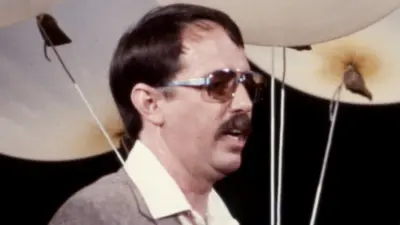We've updated our Privacy and Cookies Policy
We've made some important changes to our Privacy and Cookies Policy and we want you to know what this means for you and your data.
Thousands of UK motorists can drive with over 12 points
- By Daniel Wainwright
- BBC News
Image source, PA
More than 10,000 motorists are allowed on the roads despite having 12 or more penalty points on their licence.
Analysis by BBC News shows motorists in the north of England had the most licences with a dozen or more points.
Road safety charities said allowing people with lots of points to stay on the road made a mockery of the system.
The Driver and Vehicle Licensing Agency said the figure included people who had served a ban and had successfully reapplied for their licence.
Drivers are usually banned if they get 12 penalty points within three years, but magistrates can choose not to enforce it in "exceptional cases".
The data, covering Great Britain as of the end of June 2017, also showed:
- The category with the greatest rate of offending was men aged between 25 and 34.
- Men were more likely to have clocked up penalty points than women. About 33 out of every 100,000 male drivers have 12 or more points, compared with under 8 per 100,000 female drivers.
- The most points on a valid licence belong to a 44-year-old woman in Oxfordshire. The licence has 51 penalty points.
- Almost 100 motorists were still allowed to drive despite having at least 24 points on their licences, twice the number that results in a ban if accrued within three years.
Jason Wakeford, the director of campaigns for Brake, the road safety charity, said: "Allowing dangerous drivers to stay on the road makes a total mockery of the points system.
"These are irresponsible individuals who have shown disregard for the law and the lives of other road users, time after time. People who clock up over 12 points should face an automatic ban - there needs to be a clear message that dangerous driving will not be tolerated."
'Six months is not enough'
Image source, Ann Hannon
Ann Hannon's son Matt was 22 when he died. He had been racing his best friend Steve Hayhurst, who was 23 at the time and admitted causing death by dangerous driving. Matt's family pleaded with the judge to spare him a prison sentence.
Mrs Hannon, of Blackburn, said driving bans needed to be longer in order to make people think about the consequences of bad driving.
"Six months is not enough," she said. "People use their cars for getting to work and going out. They can get by for six months. A year would make more of a difference.
"Speeding is still a big problem, but there's more focus on mobile phones as well. You see people on their phones at the wheel."
Mrs Hannon, of Blackburn, has worked with the Wasted Lives campaign in Lancashire to educate young drivers about risks on the road.
The data includes drivers who have served a driving ban and successfully re-applied for their licence. It does not include people who were currently banned as of the end of June.
The area with the highest proportion of drivers with a dozen or more points was Blackburn with Darwen. Sixty-seven drivers there had a dozen or more points in June 2017, which is equivalent to almost 60 out of of every 100,000 motorists.
Penalty points and the law
Bans are six months for 12 or more penalty points accrued within three years.
Most points remain valid for three years from conviction, but stay on licences for four years, which is why so many drivers have a high number of points but are allowed to be on the roads.
The number of points put on a licence varies depending on the offence.
Exceeding the speed limit can lead to three to six points as can using a mobile phone at the wheel.
Someone who drives above the legal alcohol limit would get 10 points.
Up to 11 points can be put on a licence for drug driving and these stay on licences for up to 11 years.
The Ministry of Justice said decisions on sentencing were a matter for the courts, taking into account the "full facts" of the case.
A spokeswoman said: "Drivers who kill ruin lives and must face the full force of the law. While we can never compensate for the loss of a loved one, we are clear that the punishment must fit the crime.
"Last year, the government issued a consultation that will see the maximum sentence in this area increase from 14 years to life. We are now considering the consultation responses. Any announcement will be made in due course."
Tim Williamson, a criminal and regulatory lawyer, said magistrates considered each case "very carefully".
He said: "There must be an opportunity for courts to scrutinise each case on its merits and consider how this automatic punishment would actually affect people and their families - and this opportunity does exist within the legal framework.
"If the magistrates accept that on a balance of probabilities having heard evidence on oath from a motorist that they, or other people, would suffer 'exceptional hardship' then they have discretion to disqualify for fewer than six months or not to disqualify the motorist at all.
"So any motorist with 12 or more penalty points will have been to court and will have been required to explain in detail the implications of a driving ban - providing documentary evidence where possible."
Top Stories
Features & Analysis
Most read
Content is not available








